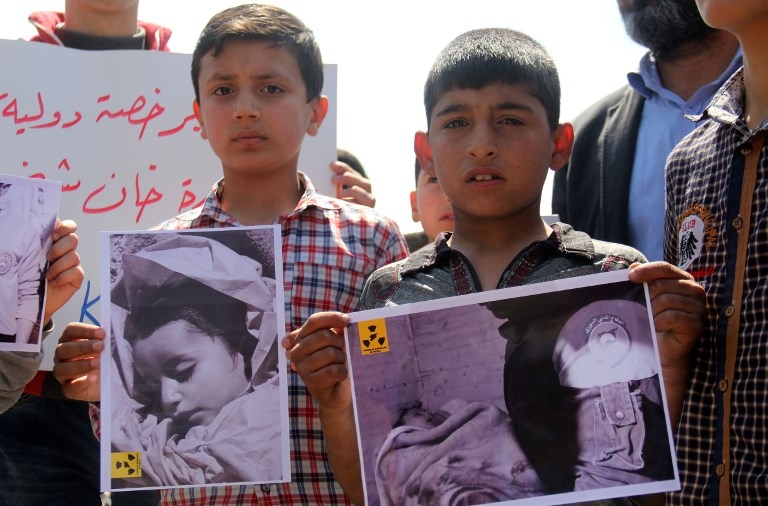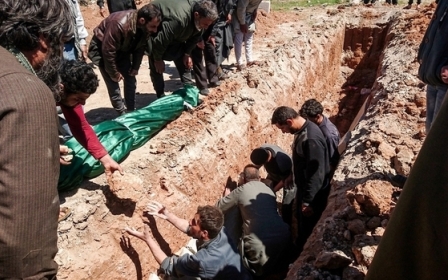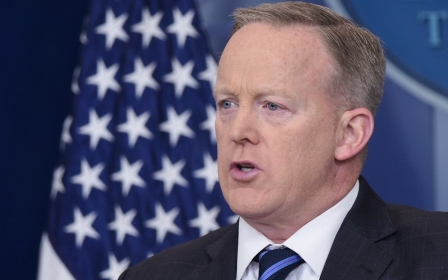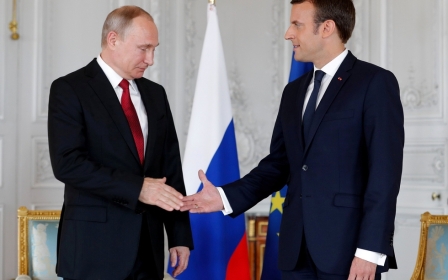UN chemical weapons team in Syria complains of political pressure

A joint United Nations-Organisation for the Prohibition of Chemical Weapons panel is facing heavy political pressure as it prepares to present its findings on the sarin gas attack in the Syrian town of Khan Sheikhun, the head of the investigation said on Thursday.
After meeting behind closed doors with the UN Security Council, Edmond Mulet complained of a "highly-politicised environment" in which unidentified "interested parties" were seeking to influence the panel.
"We do receive, unfortunately, direct and indirect messages all the time from many sides telling us how to do our work," Mulet said.
"Some of these messages are very clear in saying that if we don't do our work according to them... then they will not accept the conclusions of our work," he added.
Mulet did not name the countries, but diplomats have said Russia has been active in pressuring the Joint Investigative Mechanism (JIM).
"The messages are coming from everywhere," Mulet added, suggesting that Western powers were also in frequent contact with the panel.
The panel is due to present its findings in October.
During his meeting with council members, Mulet said he had appealed to them to "please let us do our work" and pledged that the investigators would be impartial, objective and independent.
The Security Council established the JIM in 2015 to investigate cases of suspected chemical weapons use in Syria and apportion blame for the attacks.
In previous reports, the JIM already determined that Syrian government forces were responsible for chlorine attacks on three villages in 2014 and 2015, and that the Islamic State (IS) group used mustard gas in 2015.
But Syria-ally Russia has publicly questioned the work of the inquiry and said the findings cannot be used to take UN action and that the Syrian government should investigate the accusations.
OPCW confirms sarin use
The Organisation for the Prohibition of Chemical Weapons (OPCW) last week presented a report from its fact-finding mission that confirmed sarin was used as a chemical weapon in the 4 April attack in Khan Sheikhun.
But it did not specify who carried out the attack that killed at least 86 people, including many children, and shocked the world.
The United States, France and Britain blame President Bashar al-Assad's forces, but Syria has denied any involvement and Russia has suggested that a chemical depot may have been hit inadvertently.
Mulet said the JIM will present its findings to the council in mid-October, focusing on the Khan Sheikhun attack and another incident involving mustard gas in September last year in Um Hosh, in Aleppo province.
The United States launched a retaliatory cruise missile strike days after the onslaught in Khan Sheikhun, targeting a Syrian airbase from where it said the chemical weapons attack was launched.
After Russia urged international investigators to visit the Shayrat airbase, Mulet said the panel was open to such a mission, but would first demand information from Syria on the flight plans at the time of the attack and the commanders in charge.
The JIM will also investigate at least six other cases of chemical weapons use in Syria, Mulet said.
New MEE newsletter: Jerusalem Dispatch
Sign up to get the latest insights and analysis on Israel-Palestine, alongside Turkey Unpacked and other MEE newsletters
Middle East Eye delivers independent and unrivalled coverage and analysis of the Middle East, North Africa and beyond. To learn more about republishing this content and the associated fees, please fill out this form. More about MEE can be found here.




